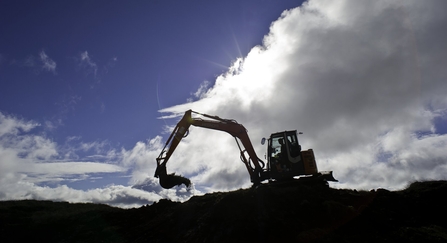- Peatlands are unique and precious habitats that are huge carbon stores, covering just 3% of the world’s surface yet holding nearly 30% of the soil carbon.
- Supporters across Somerset are being asked to complete three simple actions to help lobby the Labour Government to finally ban sales of peat products and protect the UK’s peatlands.
- 95% of people that responded to a recent UK Government consultation – of which 88% were amateur gardeners – were in favour of a complete retail sales ban.
Last year, the former Environment Secretary and Conservative MP, Theresa Villiers, introduced a Private Members' Bill to Parliament, since the UK Government's pledged peat legislation failed to materialise. Although the Bill passed its first reading, the second reading was abandoned when the 2024 General Election was called, and no parliamentary time has since been given to proceed with the Bill by the current Labour Government.
On 6th November 2024, Sarah Dyke, Liberal Democrat MP for Glastonbury and Somerton, put forward the Horticultural Peat (Prohibition of Sale) Bill. Under plans outlined in the Bill, there would be a ban on selling horticultural peat by the end of 2025. Having passed its first reading, the Bill is due to be presented in more detail at its second reading on Friday 24th January, where MPs will decide whether it can proceed to the next stage.
In 2022, the horticultural industry used 950,000m3 of peat – enough to fill 380 Olympic-sized swimming pools. This trade impacts biodiversity and carbon stores, as well as reducing our ability to withstand flooding and improve the quality of our water supplies. Ahead of the Bill’s second reading, Somerset Wildlife Trust are urging people across the county and beyond to complete three simple actions to make some noise for peat, to support this Bill reaching the next stage of the legislative process. The actions are:
- Sending a pre-written email to your local MP
- Tagging the UK Government on social media
- Signing The Wildlife Trusts' open letter to retailers
You can complete the three actions, and learn more about precious peatlands, by clicking the button below.

